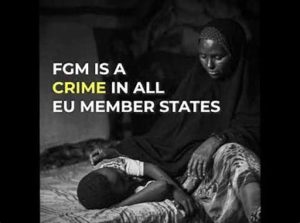 By Sarata Jabbi
By Sarata Jabbi
Gender activists in and outside the Gambia have joined the rest of the world to celebrate February 6, as the International Day of Zero Tolerance Female Genital Mutilation (FGM).
FGM is a procedure that involves altering or injuring the female genitalia for non-medical reasons and is recognised internationally as a violation of the human rights, the health and integrity of girls and women.
The theme for this year’s celebration is: “Unleashing Youth Power, women across the globe celebrated it in different ways but yet with one primary gold ‘End FGM by 2030.”
Below are the messages written by of some of the activists on their social media forums.
Fatou Baldeh, women’s rights activist and MBE:
Let’s continue our efforts in ending this harmful tradition practice that continues to violate the sexual and reproductive health and rights of millions of women and girls around. I want to celebrate young Gambians in fighting against FGM and called on people to join the fight in order to have a world free of FGM.
Fatou Badjie, gender activist and women service coordinator at refugee centre oxford:
Around 200 million women and girls in the world have had FGM. It is a form of violence against women and girls. FGM has no health benefit. Eliminating it in the next decade requires the involvement of young people, taking the lead in the campaign and standing up for their rights with energy and urgency. It also requires strong government commitment to gender equality. By 2030, no girl or woman should be subjected to this bodily harm.
Alima Dimonekene, an FGM activist and leading voice in the call for changes around services for survivors;
Alima published a blog entitled; ‘Breaking the Barriers in supporting women and girls affected by harmful practices such as female genital mutilation/cutting.’ In this blog, she said that communities’ voices are vital. ‘Communities must engage in the fight to protect and safeguard girls at risk, whilst also helping omen already living with the effects of FGM, by demanding more therapeutic care and supporting adult services in their own communities.’
Jaha Dukurah, Executive Director of Safe Hands for Girls;
She made a video recording where she talked about the importance of young people’s involvement in fighting against FGM, as she described them as leaders.
“This day means that as a global community, we have taken a stance to stand with 200 million women living with the consequences of FGM. We have also made a decision that this is a tradition we do not wish to carry forward. This day is also a reminder that we want better for our children. Young people all over the world are deciding that they want a better world for their daughters,” she remarked.
Kaddy Touray-Jarju, community outreach director at Oxford Against Cutting;
“I am urging all men and youths to join the campaign against FGM. Together we can fight and stop it. It’ not just my business but everyone’s business because when a woman is cut, the whole family is affected.”
Report compiled by Sarata Jabbi, Executive Officer CAWAG.

